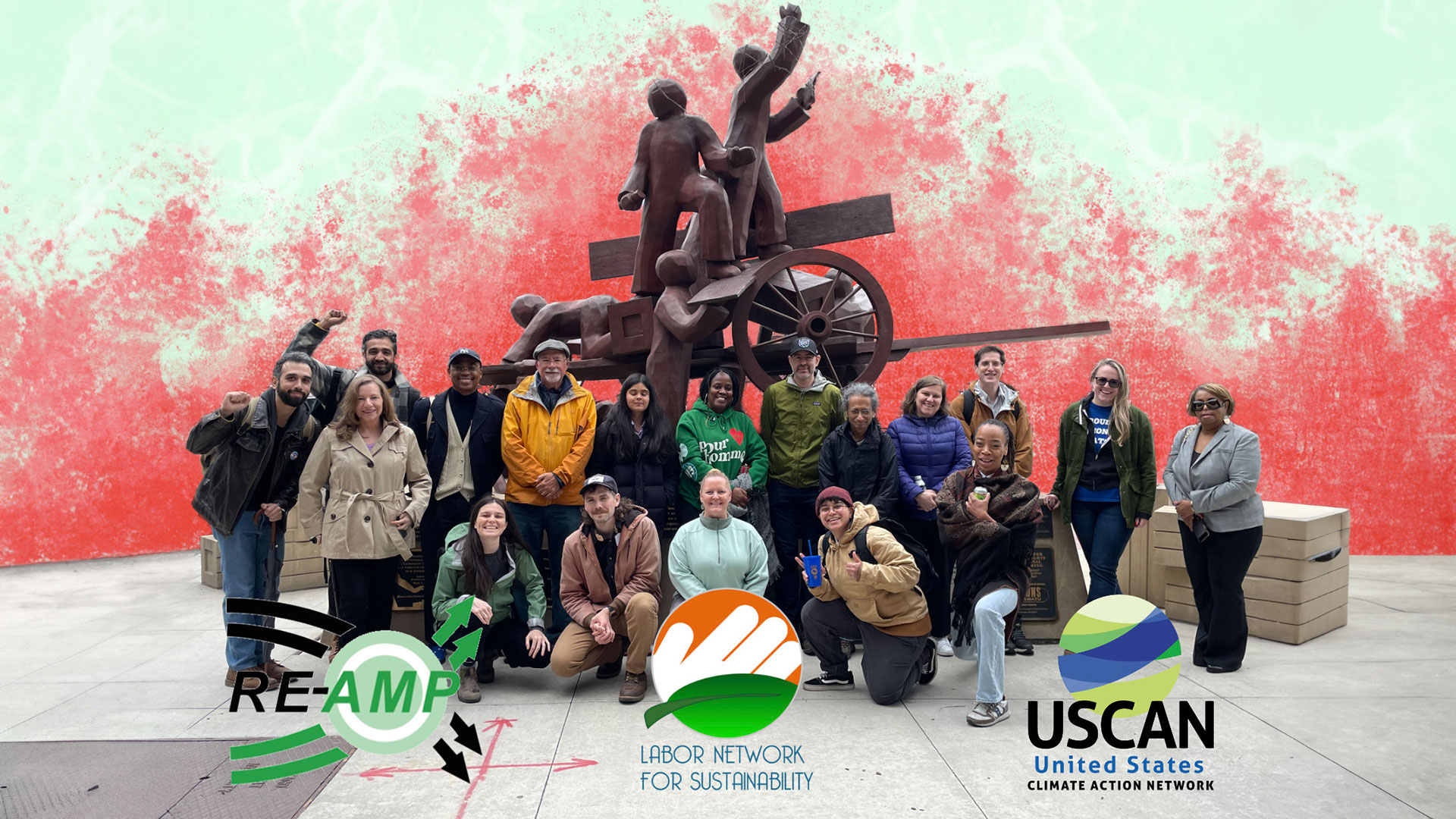
By Chris Litchfield, LNS Actions and Logistics Coordinator
In conjunction with the US Climate Action Network and RE-AMP Network, LNS convened thirty community leaders and union activists in Chicago, April 11th and 12th, to discuss regional solidarity in the fight for just transition. Grounded by RE-AMP’s technical analysis on current state of emissions in the Midwest and updates from USCAN’s international and regional campaigns (both the Fast, Full, Fair Fossil Fuel Phase-Out and the Power 4 Southern People, NOT Southern Company campaigns, respectively), just economic and social transition, and the importance of labor’s engagement in that transition, took center stage.
What really came through was the necessity to embrace a broader framework for just transition, rooting our understanding in the history of the United States. As there has yet to be a truly just transition from the underpinnings of the US economic system, namely slavery and settler colonialism, it was agreed upon that same system cannot be expected to equitably transition from fossil fuels, and any struggle for a sustainable future has to proactively address those previous unjust transitions. A visit to the site of the Haymarket Square Rally and the resting place of the Haymarket martyrs was a further reminder of the long struggle for an equitable, sustainable future we carry forward despite violence from the right wing and the state.
Perhaps expectedly there was significant interest in the broad new spectrum of EPA technical support and grantmaking programs including:
- Inflation Reduction Act Community Change Grants
- Environmental Justice Thriving Communities Grantmaking Program
- Climate Pollution Reduction Grants
- Clean Ports Program
- Environmental Justice Thriving Communities Technical Assistance Centers
Success of the Biden administration’s climate policy in many ways hinges on the dispersal of these federal funds, a notoriously convoluted process, and together with EPA representatives and community leaders attendees strategized on how best to access the grants. Familiarity with this process will be useful not only for movement capacity building but also as a point of leverage for workers when making demands of employers and sectors who are -or could be- receiving new federal investment. The Midwest has an opportunity to be a resilient climate haven, but only if we join together across the region and demand a truly just transition.